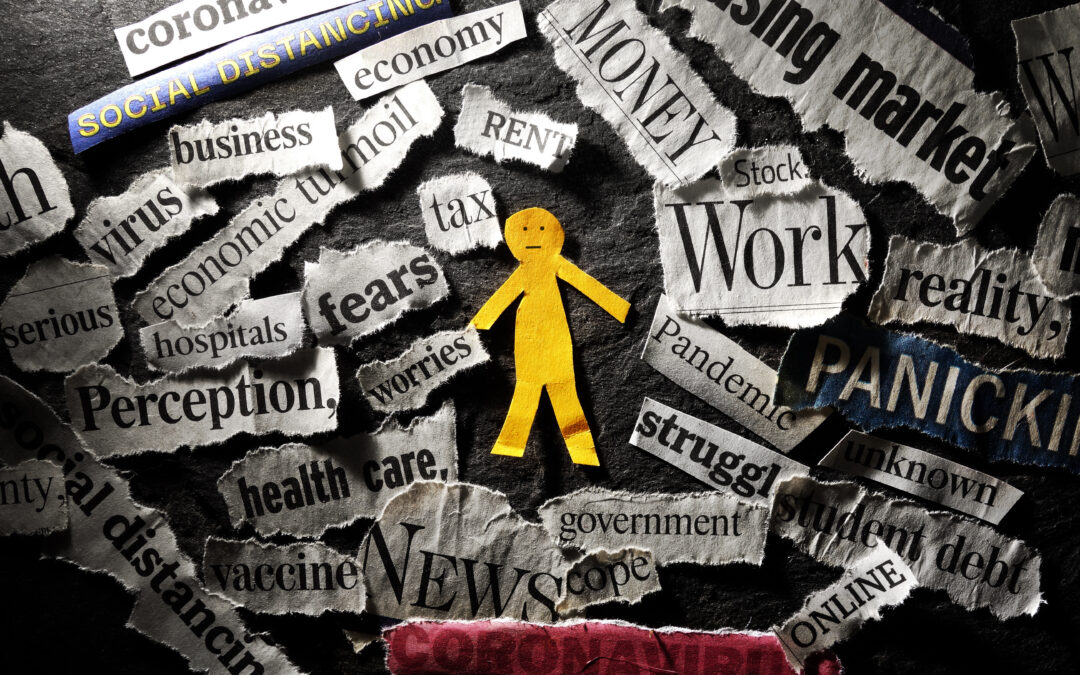I’m a journalism major at the University of Maryland, and approximately seven months ago, I found myself in a directionless state of mind.
By April 2021, I had been living at home in New York for over a year. I felt totally isolated from my university, my friends, but especially my work. I could barely bring myself do any type of schoolwork or journalism-related activities. I had zero motivation.
This was not normal, so I reached out to a therapist. And studies suggest that I wasn’t alone in feeling, well, alone.
A Penn State study with a sample size of over 43,000 students found that between Fall 2019 and Fall 2020, stress increased almost 6%. Social isolation and generalized anxiety increased 4.4% during that same period.
When it comes to the stress-level of people who are already working, a meQuilibrium survey told much the same story. Workers reported feeling 21% more burned out, and there was a 17% increase of physical symptoms of stress such as aches and pains.
And since tens of thousands of other college seniors like me will be entering the workforce in the new year, here is some expert advice on how to deal with feelings of anxiety and depression.
- If your stress level is higher than normal, seek professional help
Most articles advising people how to deal with stress put this option last, but I’m putting it first for a reason. Mental health treatment should always be an option that’s on the table when dealing with stress levels that are higher than normal. But how do you determine that?
Dr. Marla Deibler, a clinical psychologist and the founder and Executive Director at the Center for Emotional Health of Greater Philadelphia, has a simple way to figure that out.
“If you find it hard to do the things that you would normally do without too much difficulty that’s time to reach out for some help,” Deibler told me.
Deibler’s tell-tale signs that it’s time to seek professional help include:
- Loss of appetite
- Lack of interest in things you usually enjoy
- Inability to find joy
- Changes in sleep patterns
- Feeling isolated, guilty, hopeless, or helpless
- Stop reaching out to friends
Deibler says college students should really take advantage of the mental health resources available to them on their campuses.
“Certainly, college counseling centers are a great go-to if you’re a student,” Deibler said. “If you notice that a friend or a loved one is struggling — let them know that these kinds of things are pretty accessible and available.”
Talking to a therapist is as normal as going to the dentist or getting a yearly physical. You shouldn’t feel ashamed if you need therapy, and the truth is, it takes strength and courage to acknowledge that you need help.
- Realize that it’s OK to ask for help
When you ask for help at work, or even in school, it can feel like you’re getting judged or you’re putting an undue burden on others. Jerry Lee, the founder, and CEO of Wonsulting experienced this at the start of the pandemic when he was still working at Google. Everything was going virtual, and Jerry wasn’t sure how to handle himself in this new work environment.
“Because I was so used to just seeing people…and mixed in with my (Asian) upbringing of ‘you don’t want to bother people…just do as much as you can before you ask for help,’ it made me feel like I wasn’t in control of the work I was doing,” Jerry said in this Time4Coffee interview.
Jerry added that his work anxiety caused him to overthink a project so much that he ended up getting nothing done, which meant he had to have an awkward conversation with his superiors to explain what went wrong.
“I felt like I was on a downward spiral,” Jerry said. “As a result, it made me feel like maybe my manager no longer trusted me as much, and maybe as a result of COVID, I’m just not going to perform as well.”
Dr. Vishwanath Baba, a professor at Ontario’s McMaster University who studies employee wellbeing, ties stress and anxiety in the workplace to a “demand-resource control imbalance.” In other words, every person has a certain amount of physical or mental ability to complete tasks. When your manager demands you complete more than what your physical or mental ability allows, that leads to stress, according to Baba.
A good way to start chipping away at that stress is to simply ask for help. And you should ask for help before you waste hours and want to punch a hole through your computer.
“It is actually a wise thing to ask for help,” Baba told me. “When you are stressing out and struggling…you can get it done, yes, but at a very high personal cost and at a very high social cost.”
- Build a strong support system at work and outside of work
Having strong social ties, experts say, is necessary beyond just talking to a therapist or getting formal mental health treatment. A support system can include coworkers, friends, and family members. If you have no one to rely on and the workload keeps building and building, stress and anxiety can feel like walls closing in on you.
“Let’s assume that you’re an introvert and you’re a recluse,” Baba said, “Then, all of a sudden, you are left dealing with these demands all by yourself, and that could be overwhelming.”
To fix that Baba says you must build “social capital.”
“The first step is to ensure that you have enough social capital,” Baba said. “You have enough friends, other people, family, people that you can laugh with, that you can go have a beer with, that you can have some fun with.”
Dr. Deibler agrees with Baba. She said the lockdowns during the pandemic made it incredibly difficult for people to fulfill their need to connect with others.
“Social connectedness is one of the most important factors that contributes to people’s abilities to cope and being resilient in the face of adversity and stress,” Deibler told me.
- Develop proactive ways to cope with stress and anxiety
Stress, as much as it sucks, is a part of life. There’s no way to completely cut it out, and even if you did, you wouldn’t be human anymore.
“Anxiety is a normal emotion, in reaction to being faced with something that feels threatening in some way,” Dr. Deibler said.
So, since these emotions are here to stay, you need to take proactive steps to manage them before they consume you. Dr. Baba suggests people build resilience on three fronts: physical, psychological, and spiritual.
“The stress will remain the same,” Baba said, “But your resilience will alter the way you experience such stress.”
Baba said to exercise, engage in stimulating conversation and listen to music. If you’re religious, you can build up spiritual resilience by going to your house of worship. And if you aren’t religious, you can try meditation or mindfulness.
Deibler added that you shouldn’t to forget about your hobbies, which can be easy to let slide when you’re busy with school or work. Self-care is also extremely important.
“So, the first thing is making sure you get sufficient sleep, making sure you have good nutrition, make sure you exercise, and make sure you have some satisfying social relationships,” Deibler said.
The fact is, to better deal with stress, you need to lead a well-balanced life that keeps you healthy physically, mentally, and spiritually.
To recap, stress and anxiety are a part of life. We all experience it. It’s natural. To lessen your stress, you can always exercise, meditate, or simply have a conversation with a friend to decompress. But if you’re constantly stressed out or start to feel depressed, it’s time to seek professional help. Remember, talking to a therapist can’t hurt you. It can only help.


